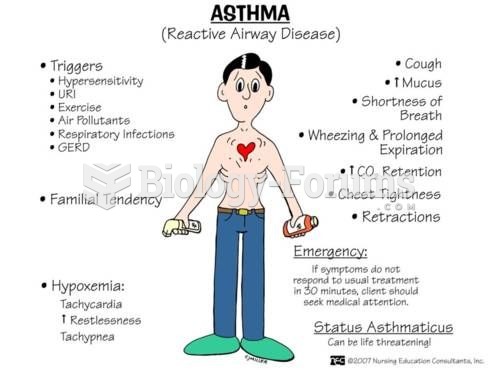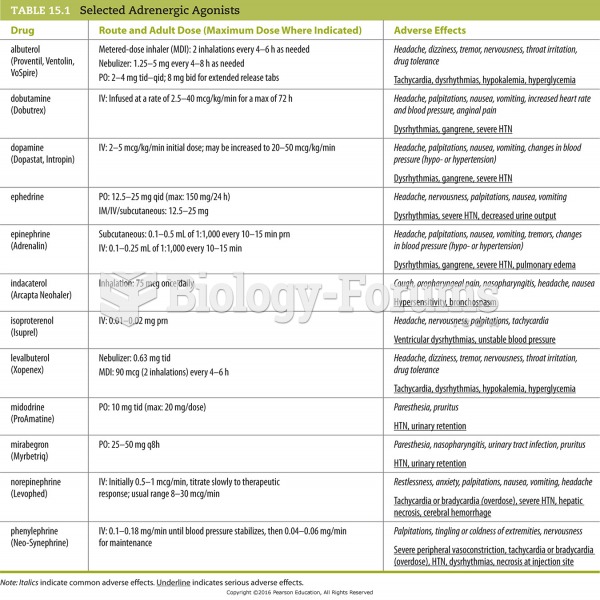|
|
|
The longest a person has survived after a heart transplant is 24 years.
The word drug comes from the Dutch word droog (meaning "dry"). For centuries, most drugs came from dried plants, hence the name.
Recent studies have shown that the number of medication errors increases in relation to the number of orders that are verified per pharmacist, per work shift.
Side effects from substance abuse include nausea, dehydration, reduced productivitiy, and dependence. Though these effects usually worsen over time, the constant need for the substance often overcomes rational thinking.
The modern decimal position system was the invention of the Hindus (around 800 AD), involving the placing of numerals to indicate their value (units, tens, hundreds, and so on).
 Many Native Americans have maintained continuous identity with their tribal roots. You can see the ...
Many Native Americans have maintained continuous identity with their tribal roots. You can see the ...
 To maintain global power requires the continuous development of weapons. Shown here is the Osprey. ...
To maintain global power requires the continuous development of weapons. Shown here is the Osprey. ...





